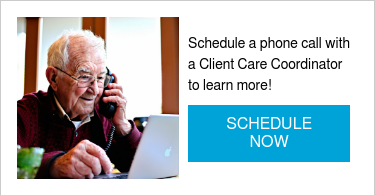When a loved one experiences a sudden health crisis, life can change in an instant. Imagine this: your mom fell and broke her hip. After surgery and a short hospital stay, the doctors said she’d need 2–3 weeks in a transitional care unit (TCU), followed by several weeks of home care.
.jpg?width=6017&height=4000&name=MotherDaughter2%20(1).jpg)
As her child, you want to be there for her — but you also have no idea what "home care" really means or how to get started. If you're facing something similar, this guide is for you.
Step 1: Understand What She’ll Need at Home
Before anything else, talk to your mom’s medical team. Ask questions like:
- What will her physical limitations be once she’s discharged?
- Will she need assistive devices like a walker, shower bench, or grab bars?
- How often will she need physical therapy?
- Will she need help bathing, dressing, or using the bathroom?
These answers will shape the care plan — whether you're managing things on your own or bringing in help (like us at Comfort Keepers).
Step 2: Get Clear on the Type of Care She’ll Need
For someone recovering from a hip fracture, home care often includes:
- Personal care assistance:
Help with bathing, dressing, toileting, and getting around safely — especially in those early weeks when everything is more difficult and risky. - Medication support:
Post-surgery medications (like pain relievers or blood thinners) need to be taken on schedule, and side effects monitored. We can help ensure nothing slips through the cracks. - Physical therapy support:
Licensed therapists visit a few times a week, but daily movement is key. We help clients stick to their routines and complete exercises safely. - Meal preparation:
Cooking is usually off the table right after surgery. We prepare easy, nutritious meals and snacks that support recovery and follow any dietary restrictions. - Companionship and emotional support:
Emotional support is just as important as physical help. Loneliness, frustration, or anxiety can slow healing. Our caregivers are there to connect — not just to assist.
Step 3: Estimate How Many Hours of Care She’ll Need
This depends on your mom’s recovery speed, your availability, and your budget. Here’s what I often suggest:
- First 1–2 weeks at home: Expect 4–8 hours of care per day, depending on mobility and pain levels. Morning and evening assistance are especially important.
- Weeks 3–4: As strength improves, you may reduce this to 4 hours per day, focused on physical therapy, meals, and mobility help.
- Ongoing needs: Some clients need part-time help for a few months; others recover faster.
Pro Tip: Before your mom leaves the TCU, ask the discharge planner or social worker to help estimate care needs and recommend trusted home care providers. (We work closely with them all the time.)
Step 4: Be the “PT Buddy” — or Let Us Help
Physical therapy is a must — but it’s hard to do alone. Whether it’s you or a caregiver, having a support person makes all the difference.
- Learn the exercises alongside her. Ask the PT to teach you how to guide and spot her safely.
- Create a routine. Set a time each day for PT and track progress together.
- Stay encouraging. Recovery takes time, and every step forward counts.
Even without a medical background, your support can help her stay on track and motivated.
Step 5: Have a Meal Plan in Place
Nutrition fuels recovery, but after a hip fracture, most clients can’t cook for themselves. We recommend:
- Preparing and freezing meals ahead of time.
- Using meal delivery service designed for seniors or post-surgery diets.
- Asking friends or family to rotate meal drop-offs.
- Keeping easy healthy snacks on hand — yogurt, protein drinks, soft fruits, etc.
We often help families prepare meals tailored to recovery needs, so you don’t have to worry about it all on your own.
Final Thoughts: Take Care of You, Too
Supporting your mom through recovery is incredibly loving — and incredibly draining. You can’t do it all. And that’s okay.
Here’s what I tell every family:
- Ask for help.
- Use professional caregivers (even part-time).
- Take breaks.
- Stay connected to others going through the same thing — online or local.
You need to be healthy and present — not overwhelmed and exhausted. That’s where we come in. At Comfort Keepers, we’re here to support both of you.
You’ve Got This! You’re Not Alone — We’re Here to Help
Helping your mom recover at home might feel like a huge task, but with some planning and a trusted support system, it’s absolutely doable. If you need guidance, resources, or just a caring hand — reach out. We’re here to make this journey a little easier for both of you.
Let’s talk about how Comfort Keepers can support your family.





.jpg)
